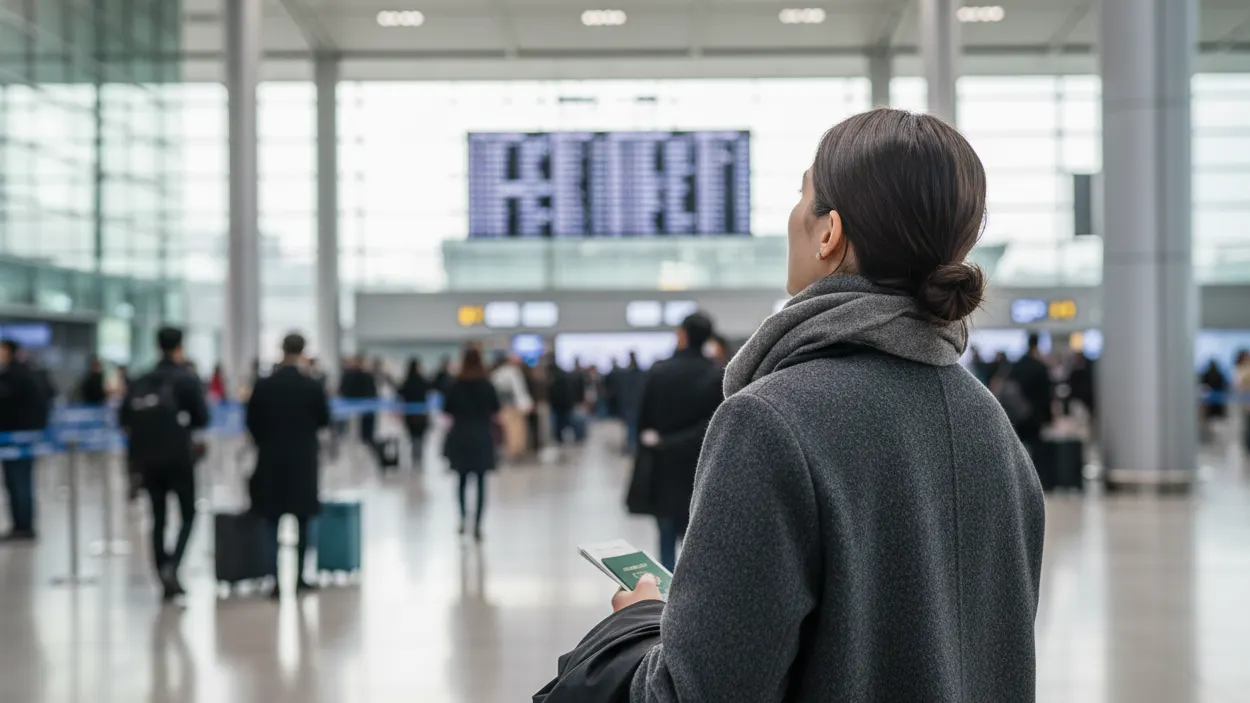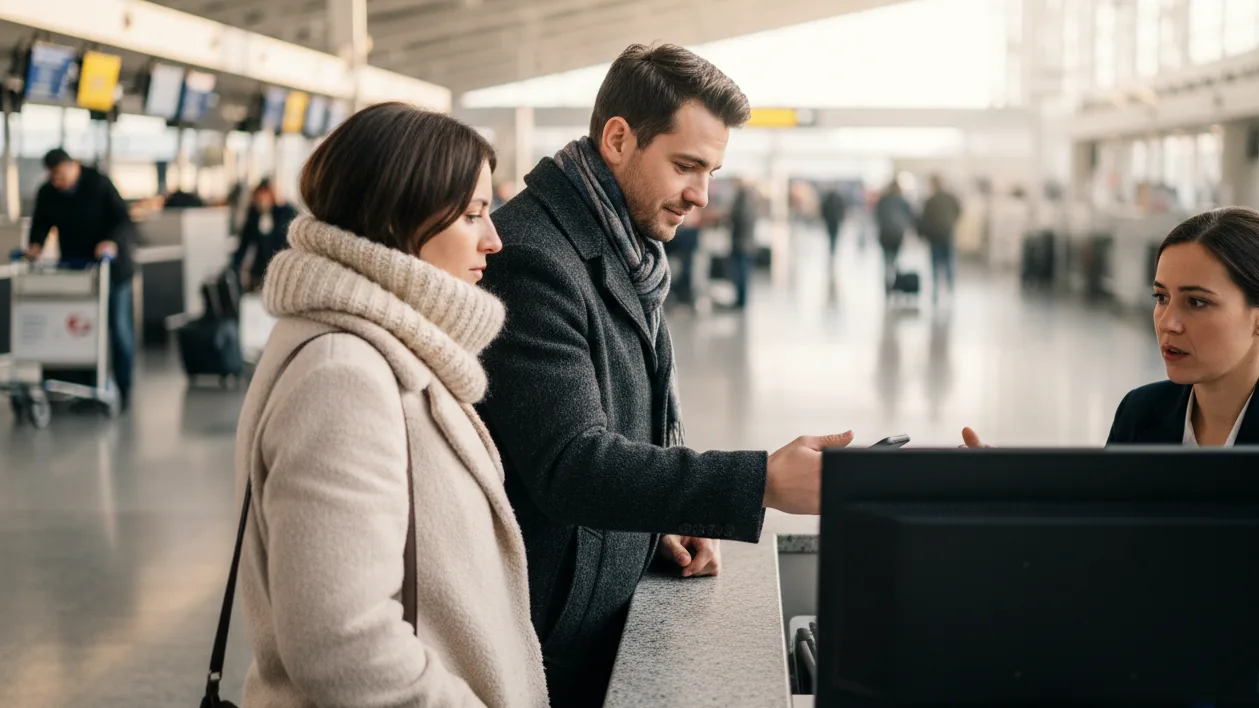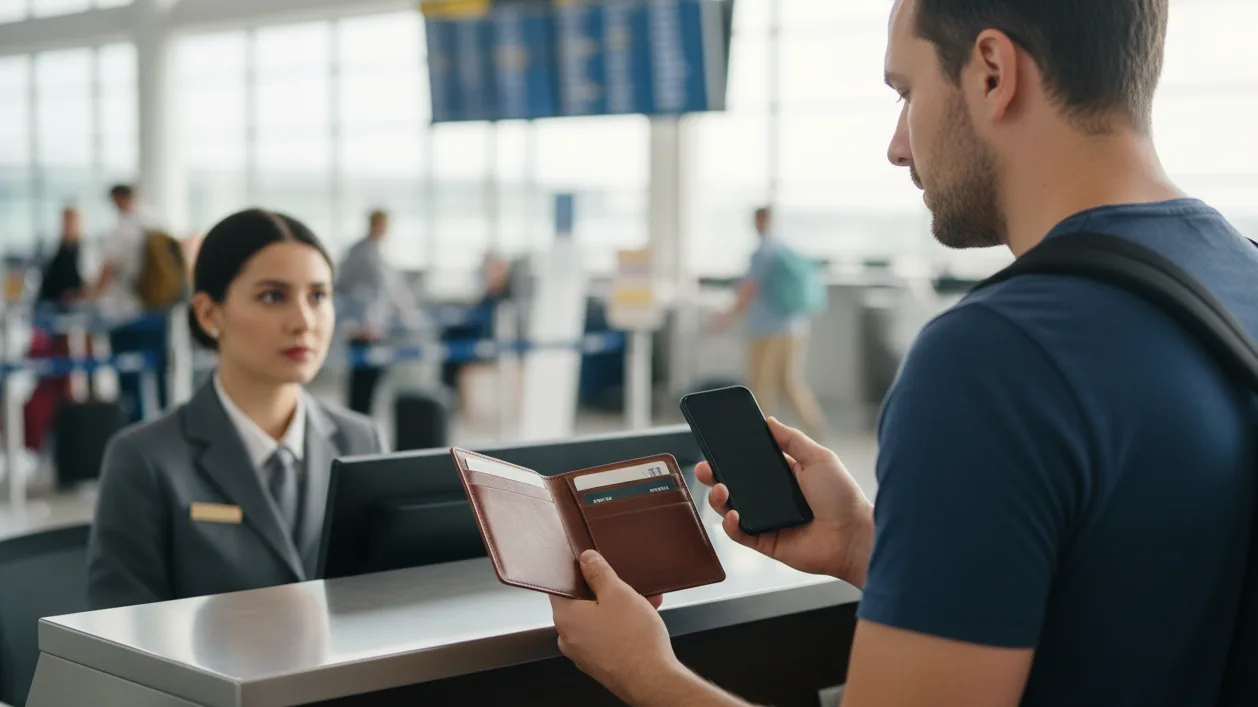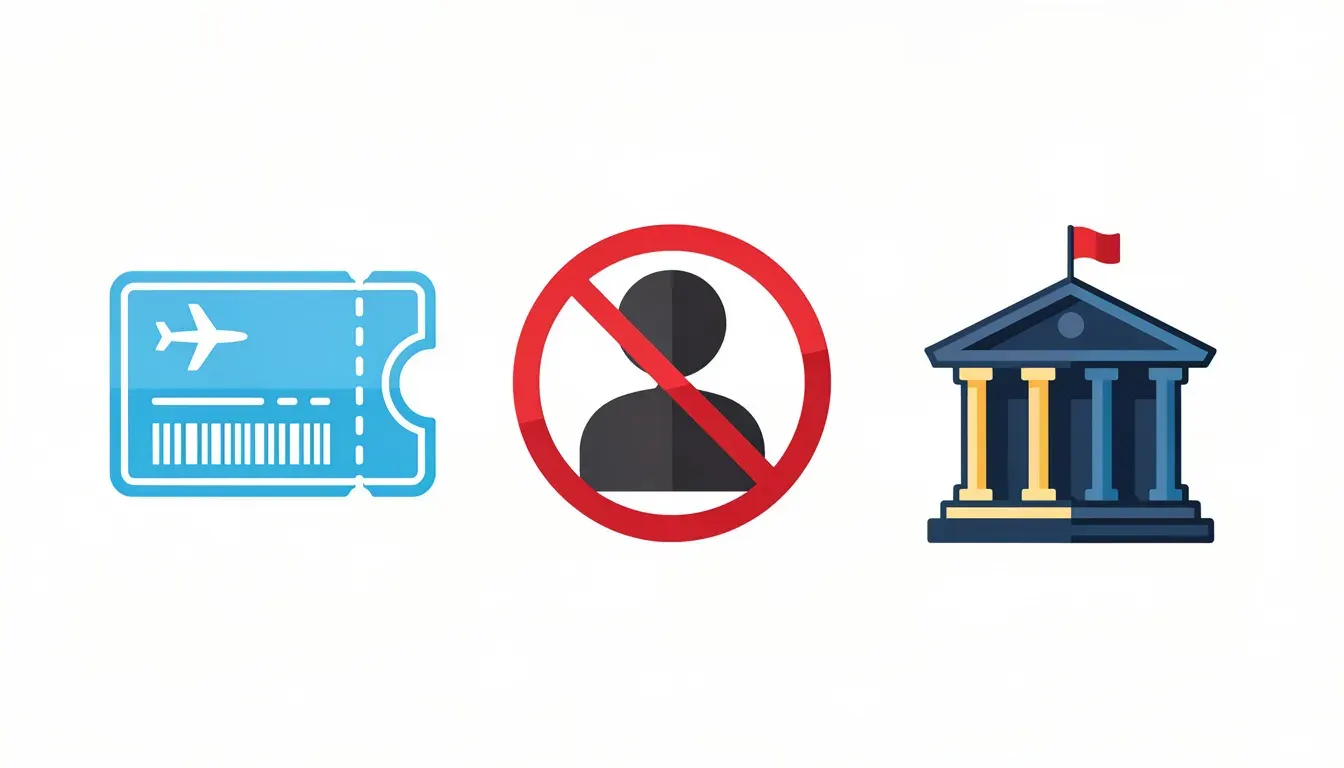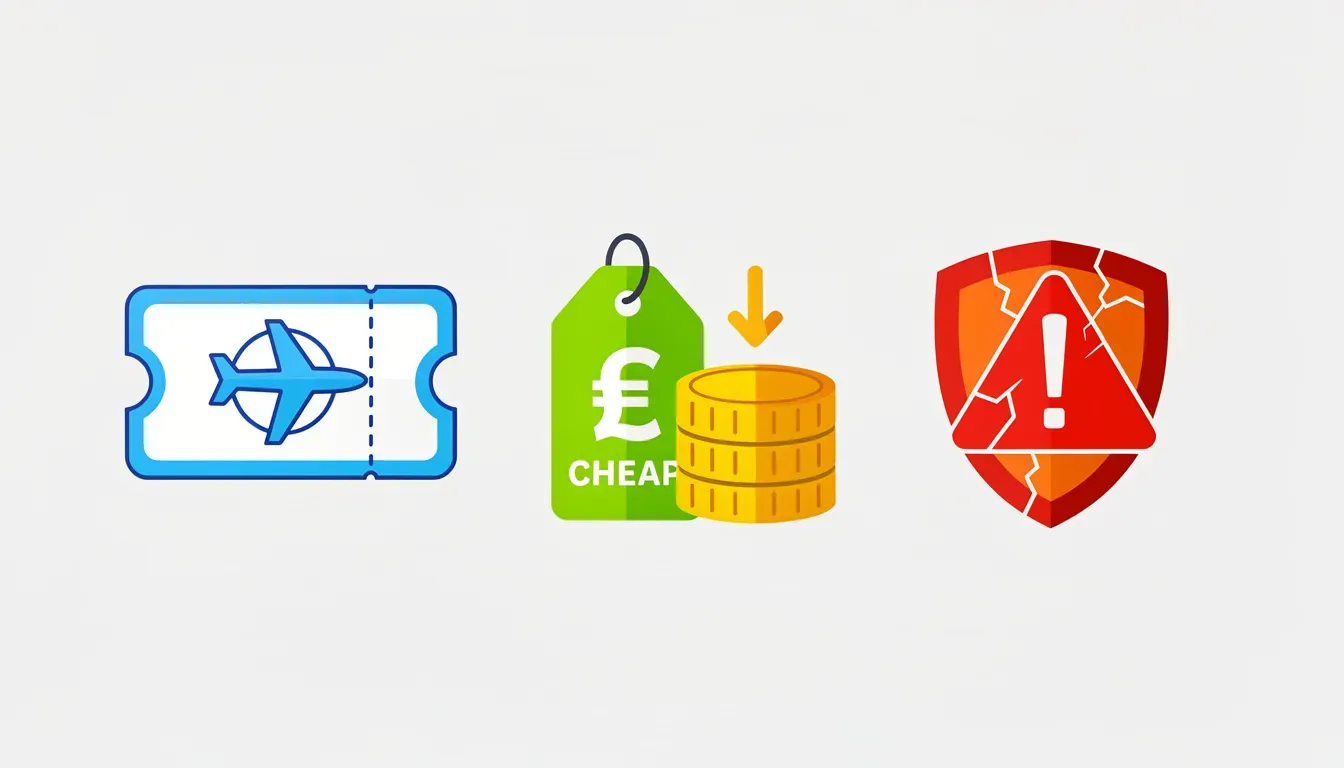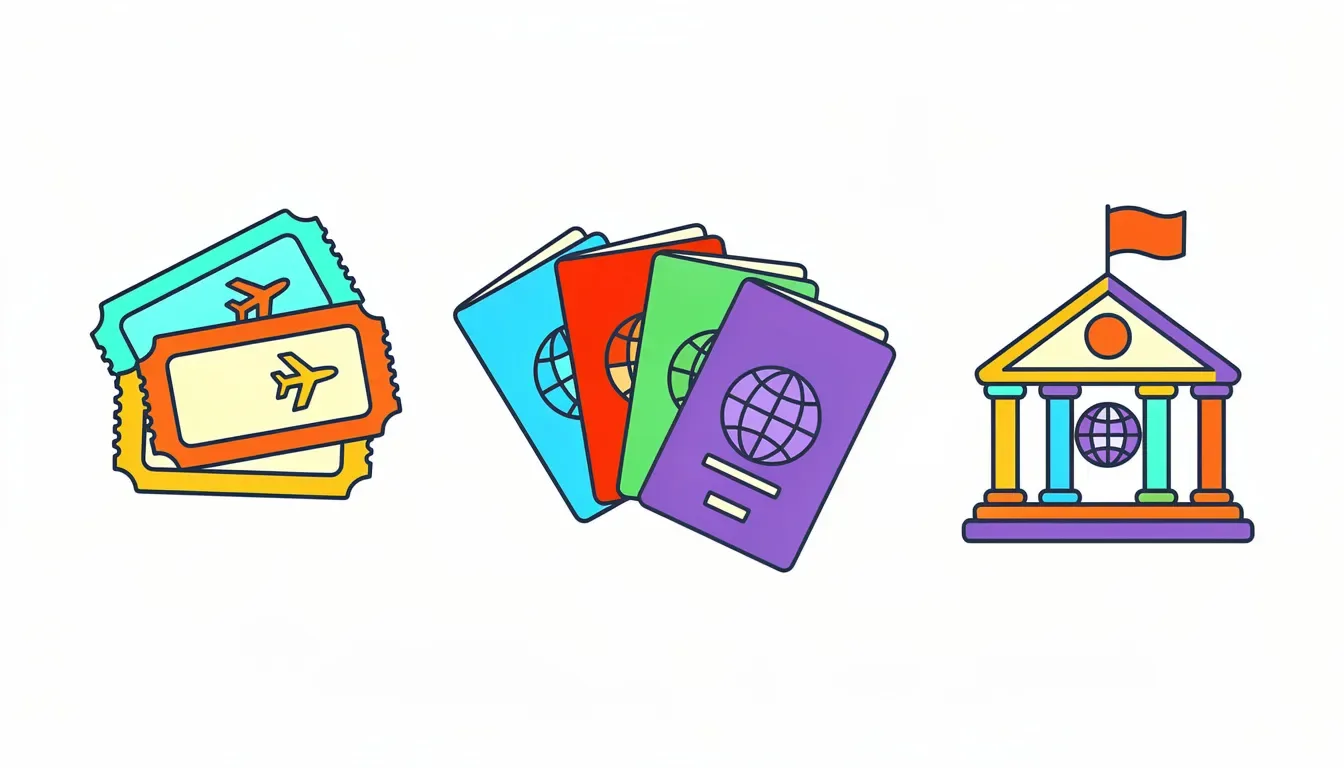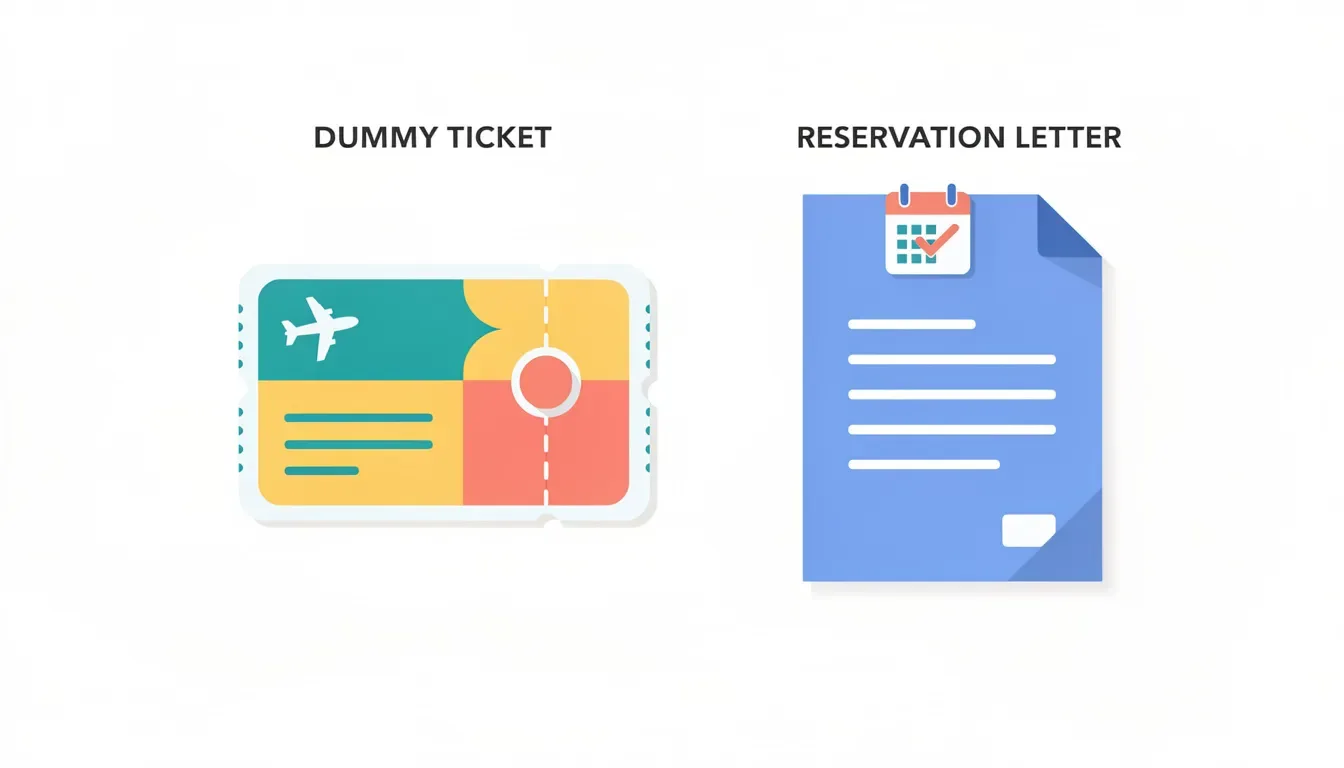How Do Airlines Check Dummy Ticket?
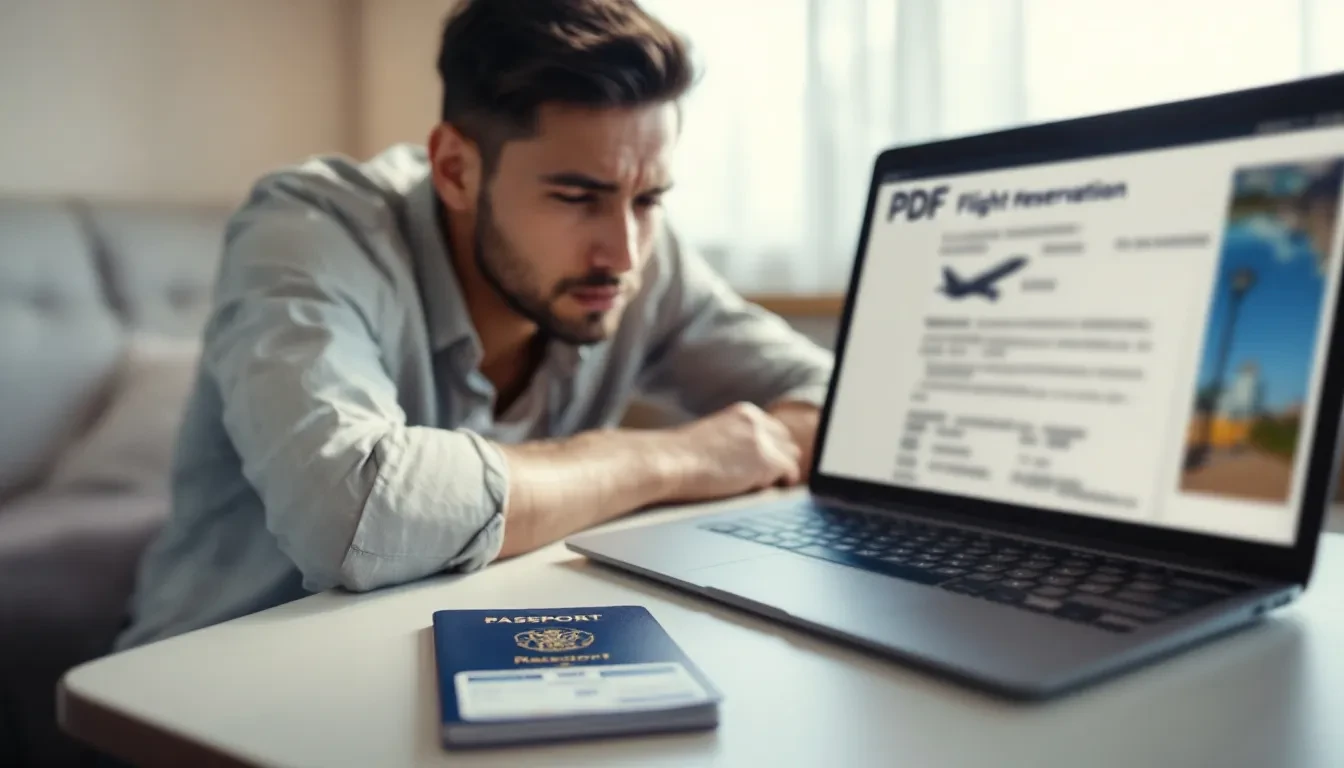
How Airlines and Embassies Verify Dummy Flight Tickets
When you apply for a visa, the embassy wants to see that you’re serious about your trip. They often ask for proof of flights and hotels, but buying tickets before you even know if your visa will be approved can feel risky.
Airlines and consulates know how to check these reservations. They run your name and code through their systems, and if everything matches, your documents pass the test. As long as your reservation is genuine, you’re in the clear. Many first-time travelers, students, or even families visiting relatives rely on these verifiable bookings to meet visa requirements safely. For instance, a student applying for a US F-1 visa might use a dummy ticket to show return plans without committing funds prematurely.
Airlines verify a dummy ticket by checking the Passenger Name Record (PNR) in their global booking system. Each reservation is stored in databases like Amadeus, Sabre, or Galileo, allowing airline staff to confirm if the booking exists and matches the passenger’s details. A legitimate dummy ticket will appear as an active reservation, even though it’s unpaid or temporarily held. Services like dummyflights.com generate real, traceable PNRs that can be verified directly on airline websites under “Manage Booking” or “Check My Trip,” ensuring your ticket passes airline and embassy authenticity checks.
Last updated: October 2025 — verified against latest airline reservation and PNR validation standards.
Table of Contents
- How Airlines Actually Check a Reservation
- Dummy Ticket vs Real Ticket — What’s Actually Different?
- Why You Can’t (and Shouldn’t) Try to Fly With a Dummy Reservation
- dummyflights.com Solutions — Embassy-Ready, Verifiable Reservations
- The Bottom Line — Airlines Check Dummy Ticket Details, and That Works in Your Favor
- Need to Cancel or Update Your Dummy Ticket? Here's What to Do
Here, we’ll look at how airlines check reservations, what separates a dummy ticket from a fully ticketed flight, why you can’t fly on a dummy booking, and how you can get safe, embassy-ready documents for your application. This guide will equip you with the knowledge to navigate visa requirements confidently.
How Airlines Actually Check a Reservation
If you’ve ever looked at a flight booking and seen a short mix of numbers and letters, that’s your PNR. It looks small, but it’s the key to your entire reservation. Whenever an airline or a consulate officer checks whether your booking is valid, this is the code they start with. Understanding how it works will help you see why a real reservation matters and why embassies can verify your documents in seconds. For example, in high-volume visa centers like those for Schengen countries, officers routinely verify PNRs to ensure authenticity.
What a PNR Is and Why It Matters
PNR stands for “Passenger Name Record.” Think of it as the ID card of your flight reservation. Every time you or anyone else makes a booking through an airline, travel agency, or online booking site, the system automatically creates a PNR. It’s usually a six-character mix of numbers and letters, though sometimes it can be longer.
That little code carries a lot of weight. With it, an airline staff member can pull up your booking, see your itinerary, and confirm that the details match what’s written on your printed or PDF reservation. If the code doesn’t exist in the airline’s system, the booking is simply not real.
For embassies, this code is proof that the reservation is genuine. When they want to double-check, they type the PNR into the airline’s website or internal system, and the booking details pop up. That’s why having a verifiable PNR is non-negotiable. Without it, your documents may look nice on paper, but they won’t pass even the simplest verification. Travelers applying for Canadian visas, for instance, often face strict scrutiny, making a valid PNR essential.
Where PNRs Live: Global Systems and Airline Databases
Now that you know what a PNR is, let’s talk about where it lives. Every airline keeps its reservations inside a booking system. Some airlines use their own internal platforms, while many rely on what’s known as a Global Distribution System (GDS). Don’t let the name scare you. A GDS is simply a worldwide computer network that allows airlines, travel agencies, and booking sites to share and access reservations.
When you make a booking, your PNR gets stored inside this network. That means it isn’t just sitting on one computer. It’s connected to airline databases around the world, which makes it easy to retrieve. If you’ve ever entered your PNR on an airline website and instantly seen your booking, that’s the system doing its job.
Authorized users — airline staff, travel agents, and consular officers — can all access these systems. They aren’t peeking at anything secret. They’re simply pulling up the details attached to the PNR to see if the reservation matches the information you’ve provided.
Here’s the key point: when you hand over a reservation with a valid PNR, you’re essentially saying, “Check this yourself.” That level of transparency is why embassies accept dummy tickets as part of visa applications — they know they can verify the booking in seconds. This system ensures efficiency, especially for busy embassies handling thousands of applications monthly.
The Specific Checks Airlines Run
When an airline staff member or consulate officer looks up your PNR, they don’t just stop at seeing if it exists. They look at specific details to make sure everything adds up. Here are the main checks they run:
- Name match: Your reservation name must match your passport exactly. Even a small difference, like a missing middle name, can raise questions.
- Travel dates: The system shows your departure and return dates. Airlines and embassies want to see that these dates make sense for your visa application.
- Origin and destination: The booking should show clear start and end points. A one-way ticket into a country without an onward booking often draws more attention.
- Booking status: This is crucial. The status will either show as “reserved,” “ticketed,” “cancelled,” or “expired.” A reservation that’s still active is valid, even if it’s not yet paid for.
- Fare class and routing: This shows what type of seat and flight path you’ve booked. Consulates don’t usually care about fare classes, but airlines do.
- E-ticket number: If a booking has been fully paid and ticketed, it generates an e-ticket number. If it’s a reservation for visa purposes, it may not have this number, but it will still have a valid PNR.
- Seat assignment: Not always present, but when it is, it confirms the booking is live in the system. For more on how to get a reliable reservation, check out our FAQ page.
Each of these checks tells the airline or embassy whether the booking is consistent, real, and active. If the PNR pulls up all this data correctly, your reservation passes the test. In practice, this process can take mere seconds, streamlining visa approvals.
Automated Systems vs Manual Spot Checks — Red Flags Airlines Look For
Not every booking gets checked by a human. Airlines use automated systems that scan for unusual activity. For example, if someone books a complex routing with very short layovers or if the same name appears on multiple bookings, the system may flag it.
Other times, staff perform manual checks, especially at airport counters or during consular reviews. They’ll look for red flags like:
- Mismatched names between the passport and the booking.
- Very short lead time — reservations made only hours before travel may look suspicious.
- Odd routing that doesn’t fit a logical trip, such as flying halfway around the world with no clear reason.
- Duplicate bookings in the system can suggest misuse or errors.
It’s important to understand that these red flags don’t mean you’ve done anything wrong. They simply tell the system or staff member to look closer. If your reservation is real and your details line up, the check will confirm it, and you’ll have nothing to worry about.
For you as a visa applicant, the lesson is simple. Use real, verifiable reservations with a PNR. That way, whether an airline system runs an automated scan or an embassy officer checks manually, your documents will stand up to scrutiny every time. For Schengen visas, embassies often require proof of onward travel; a verifiable dummy ticket can satisfy this without financial commitment, helping applicants from countries like India avoid rejection due to incomplete itineraries.
Dummy Ticket vs Real Ticket — What’s Actually Different?
When people first hear the phrase “dummy ticket,” it often causes confusion. Some assume it’s fake, others wonder whether it’s legal, and many don’t realize that it’s a real, verifiable reservation. To clear up the confusion, let’s break down what makes a reservation “real,” how it differs from a fully paid ticket, and why this distinction matters for your visa application. Expanding on this, consider a scenario where a business traveler uses a dummy ticket for a UK visa— it provides proof without the risk of cancellation fees if plans change.
When Is a Reservation “Real”?
A reservation is real when it generates a Passenger Name Record, or PNR. That code is your booking’s fingerprint. With it, anyone — an airline staff member, a consulate officer, or even you — can look up the booking on the airline’s website or system.
If the booking pulls up correctly, it proves the reservation exists in the airline’s database. That’s what embassies and consulates care about. They don’t expect you to risk hundreds of dollars before knowing whether your visa will be approved. What they want is to see proof that you’ve planned your trip and that the reservation is genuine.
At DummyFlights, every reservation we issue comes with a verifiable PNR. That means if an embassy officer enters the code into the airline’s website, they’ll see the same itinerary that’s on your PDF. For you, that’s peace of mind. For the consulate, it’s confirmation that you’re submitting valid, trustworthy documents. This approach has helped countless applicants, including those for UAE tourist visas, where proof of return is mandatory.
Reservation vs Fully Paid E-Ticket — The Technical Difference
Now, let’s get clear about what separates a reservation from a fully ticketed booking. Both start with the same process. You choose your flights, the system creates a PNR, and the booking appears in the airline’s database. But here’s where the paths split:
- Reservation with PNR only: The booking exists, but no payment has been processed. The system shows the itinerary as “on hold” or “reserved.” You have the PNR, but you don’t yet have an e-ticket number. This type of reservation works perfectly for visa applications because it’s verifiable. However, it’s not enough to actually board a plane.
- Fully paid e-ticket: Once you pay, the airline issues an e-ticket number. This number is tied to your PNR and confirms that the ticket is finalized. Only with an e-ticket can you check in, receive a boarding pass, and actually travel.
Think of it like reserving a hotel room online. You might hold a room for a few days without paying up front. The reservation is real, and the hotel can see it in their system. But until you check in and pay, you can’t sleep there. Flights work the same way.
This technical difference is why embassies accept verifiable reservations as part of your visa application. They know a PNR-based booking is real and checkable, even if it hasn’t been paid in full yet. For you, that means no financial risk until your visa is approved. In countries like the US, where visa interviews can be unpredictable, this flexibility is invaluable.
Common Misconceptions and Legality
Here’s where a lot of travelers get tripped up. They hear “dummy ticket” and assume it means fake or forged. That’s not the case. A dummy ticket from a service like DummyFlights is a real reservation with a valid PNR. It’s just not a paid, fully ticketed booking.
Using a reservation like this for a visa application is common practice. Students heading abroad, families planning visits, digital nomads testing a new destination — all of them often need proof of travel plans before they’ve committed money to flights. Embassies understand this. That’s why they allow reservations instead of requiring full tickets.
It’s also important to stress that this practice isn’t illegal. You aren’t tricking the airline or creating fake documents. You’re presenting a genuine reservation that exists in the airline’s system. Consular officers know how to check it, and once they do, they see the booking is real. To learn more about legal aspects, visit DummyFlights.
When a Reservation Might Still Lead to Travel
Every so often, travelers wonder whether they can fly on a reservation without paying. The simple answer is no. Without an e-ticket number, the airline won’t issue a boarding pass. You’ll be stopped at check-in.
That said, there are rare situations where a reservation can later be ticketed. For example:
- If you pay the airline or travel agent before the reservation expires, it can be converted into a full ticket.
- Some systems allow you to extend the reservation period before final payment, giving you more time to decide.
But until you pay and receive that e-ticket number, you won’t be allowed to board. For visa purposes, though, you don’t need a paid ticket. A verifiable reservation with a PNR is all that’s required.
When you’re applying for a visa, what matters most is proof that your plans are real and checkable. A dummy ticket from DummyFlights gives you exactly that: a valid, verifiable reservation that embassies can confirm instantly. Understanding the difference between a reservation and a fully paid ticket helps you avoid confusion — and ensures you always hand over documents that meet the standard. Adding to this, many users report smoother processes when using services like ours for complex applications, such as those for the UK or Canada.
Why You Can’t (and Shouldn’t) Try to Fly With a Dummy Reservation
Every now and then, someone asks, “If my dummy ticket shows up in the airline system, can I just use it to fly?” The short answer: no. And the smarter answer: you really shouldn’t even try. Dummy reservations serve a very specific purpose — visa applications — and they stop being useful the moment you walk up to a check-in counter. Let’s break down why, including real-world examples where attempts have led to denials.
Operational Limits: Payment, Ticket Numbers, Seat Assignment
Airlines run on strict systems. When you book a flight, the reservation system creates a PNR. But unless you’ve paid, that record doesn’t get upgraded to an e-ticket. And without an e-ticket, the system won’t generate a boarding pass.
Here’s what that means in practice:
- No payment = no guarantee. Airlines won’t hold an unpaid seat forever. If the reservation expires, your seat can be released back into inventory.
- No e-ticket number = no boarding pass. Check-in staff rely on that ticket number to process your journey. If the system doesn’t show one, they simply can’t check you in.
- Seat assignments can vanish. Even if your reservation once displayed a seat number, it’s temporary. Once the hold period lapses, that seat gets reassigned.
So while your dummy reservation looks convincing on paper and online, operationally, it’s missing the most critical ingredient: payment. Without it, your booking has no “weight” in the airline’s system. This is why attempting to use one for travel can lead to immediate rejection at the airport.
Airport and Immigration Risk: Boarding, Check-In, and Denied Boarding
Imagine walking into an airport with just a dummy reservation. You hand over your passport, the check-in agent types in your PNR, and the screen flashes “reservation only.” No e-ticket number. At best, they’ll politely explain that you need to pay before you can travel. At worst, they may treat it as a suspicious attempt to board without a ticket.
Even if you somehow cleared the airline desk — which is practically impossible — immigration officers at your departure point could stop you. Border control often asks to see not only your itinerary but also your confirmed ticket. Without an e-ticket number, they know you aren’t a genuine traveler on that flight.
The outcome is always the same: denied boarding, wasted time, and a very stressful experience. This is why dummy tickets should never be confused with travel documents. Their purpose is to help you secure your visa. They are not shortcuts to free flights. Reports from travelers in forums highlight cases where such attempts resulted in bans from airlines.
Practical Alternatives If You Need Flexible Travel
Now, what if you’re hesitant to commit money to flights but also want the option to travel once your visa is approved? That’s where smarter alternatives come in.
- Refundable tickets: Many airlines sell fully refundable fares. They cost more upfront, but you can cancel and get your money back once your visa is confirmed.
- Flexible fares: Some tickets allow changes with minimal fees. These can be a good middle ground if you want flexibility without total risk.
- Book after visa approval: The simplest option. Use a flight ticket for visa reservation for your application, then buy your actual ticket once you have the approval in hand.
These approaches keep you in control and avoid unnecessary stress at airports.
Dummy reservations exist for one reason: to support your visa application with proof of travel plans. They’re not travel hacks or loopholes. Once you understand the operational and legal realities, it’s clear why you can’t — and shouldn’t — try to fly with one. Keep dummy tickets where they belong, in your visa file, and use real tickets when it’s time to board the plane. This strategy has proven effective for applicants worldwide, reducing financial risks significantly.
dummyflights.com Solutions — Embassy-Ready, Verifiable Reservations
When you’re preparing your visa paperwork, the sticking point is often the flight details. Most embassies want to see a realistic plan for your trip — including where you’re going, when you’ll arrive, and when you plan to return to your home country. The challenge is proving all that without spending hundreds on a flight ticket you might not end up using. That’s where DummyFlights steps in with a smarter, cheaper alternative. Our services are tailored for diverse needs, from student visas to tourist extensions.
Real Reservations You Can Actually Verify
Every dummy flight ticket we issue comes with a genuine PNR code — the industry standard that airlines use to identify bookings. Sometimes you’ll also see this called a booking reference number, a PNR number, or simply a flight reservation number. Whatever the label, it’s the same thing: a unique record that allows consulates to verify your flight itinerary.
Here’s why that matters:
- If a consulate checks your travel details through an airline’s official website, the booking shows up.
- The PNR also holds important information like your flight number, routing, and even arrival times.
- Because it’s a confirmed booking in the system, you’re showing proof that fits the visa application process perfectly.
This reassurance is what keeps the experience completely safe. You’re not working with fake tickets or forged documents. You’re submitting a real, verifiable reservation created to meet embassy standards. Users frequently praise the ease of verification in their reviews.
What You Get When You Book With Us
Our service is built for travelers who want stress-free travel through the application stage. Here’s what you get when obtaining a reservation from DummyFlights:
- Instant PDF delivery — download your airline ticket or hotel confirmation within minutes.
- Unlimited date changes — adjust onward travel plans if your visa appointment shifts.
- Flat $15 price per traveler for both flight and hotel reservations.
- Multi-city options — if you need a more complex onward ticket, you can add it as a paid extra.
- No cancellation fees — if your travel details change, you won’t lose money.
- At-embassy convenience — order by phone while standing outside if you suddenly realize you need documents.
- Fast turnaround — most bookings are ready instantly with no hassle. To get started, learn more here.
Whether you need a simple dummy flight or a multi-city sample ticket, DummyFlights makes it quick, flexible, and affordable. We’ve expanded our offerings based on user feedback to include more customization options.
The Quick, No-Hassle Way to Order
Here’s how easy it is to create your confirmed booking:
- Search your route or hotel — enter your destination, dates, and entry requirements.
- Select your option — single flight, round trip, or hotel.
- Confirm and pay — provide secure payment information to complete your purchase.
- Download your PDF — your onward ticket arrives instantly as a file.
- Present to the consulate — add it to your visa application process, where officials can verify it online.
That’s all it takes. A straightforward way to provide the right documents without unnecessary costs. Many users follow these steps and report approval rates improving due to professional documentation.
Dummy Flight Reservation: Why It’s Safe to Use in Your Visa Application
Let’s clear up the biggest misconception. A dummy flight ticket is not the same as a fake ticket. Our documents are real reservations, created inside airline systems. Each one carries a valid PNR code that consulates can confirm directly with the airline’s official system. Using them for visa paperwork is common practice worldwide, and it’s designed to protect travelers from paying for non-refundable flights before approval.
Until you add payment information and receive an e-ticket number, the reservation is not valid for boarding or entry. That’s why these documents are for paperwork, not for actual travel.
If you’re working on your visa application and want the peace of mind of a genuine, verifiable reservation, DummyFlights has you covered. With thousands of successful submissions, our service stands out for reliability.
The Bottom Line — Airlines Check Dummy Ticket Details, and That Works in Your Favor
Visa applications can feel overwhelming, but flight and hotel reservations don’t have to add to the stress. Airlines and embassies use PNRs to verify bookings, which means a real reservation is all you need for your paperwork. A verified dummy reservation is a safe, practical way to meet consular requirements without locking yourself into expensive tickets before your visa is approved.
At DummyFlights, we provide instant, genuine reservations designed exactly for this purpose — easy to obtain, embassy-ready, and verifiable. Just remember, these documents are for visa applications, not for actual travel.
Stay safe — order a verified dummy ticket for visa applications from dummyflights.com.
Need to Cancel or Update Your Dummy Ticket? Here's What to Do
If your visa appointment shifts or plans change, updating or canceling your dummy ticket is straightforward. Contact the provider immediately to request changes—most services like DummyFlights offer unlimited updates without extra fees. Always keep a record of the original and updated PNR for your files.
Consider this mini-case study: Raj, an Indian applicant for a Schengen visa, had his appointment delayed by two weeks. He contacted DummyFlights to update his dummy ticket dates. The new PDF with fresh PNR was issued instantly, and his application proceeded without issues, leading to approval. This quick resolution saved him from resubmitting documents and potential delays.
Is a dummy ticket legal for visa applications?
Yes, a dummy ticket is legal as long as it's a genuine reservation with a verifiable PNR. It's widely accepted by embassies as proof of intent to travel without requiring full payment upfront.
How long does a dummy ticket remain valid?
Dummy tickets typically remain valid for 24-72 hours, but services like DummyFlights can extend validity or reissue as needed for your visa timeline.
What Travelers Are Saying
About the Author
Visa Expert Team - With over 10 years of combined experience in travel documentation and visa assistance, our team at dummyflights.com specializes in creating verifiable travel itineraries. We’ve helped thousands of travelers navigate visa processes across 50+ countries, ensuring compliance with embassy standards.
Trusted Sources
Important Disclaimer
While our dummy tickets with live PNRs are designed to meet common embassy requirements, acceptance is not guaranteed and varies by consulate or country. Always verify specific visa documentation rules with the relevant embassy or official government website before submission. dummyflights.com is not liable for visa rejections or any legal issues arising from improper use of our services.



